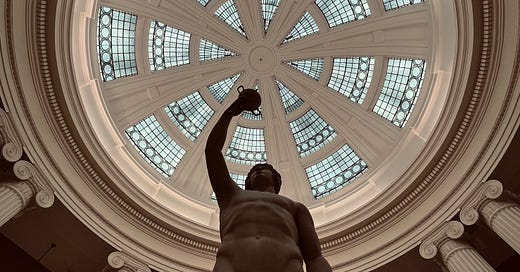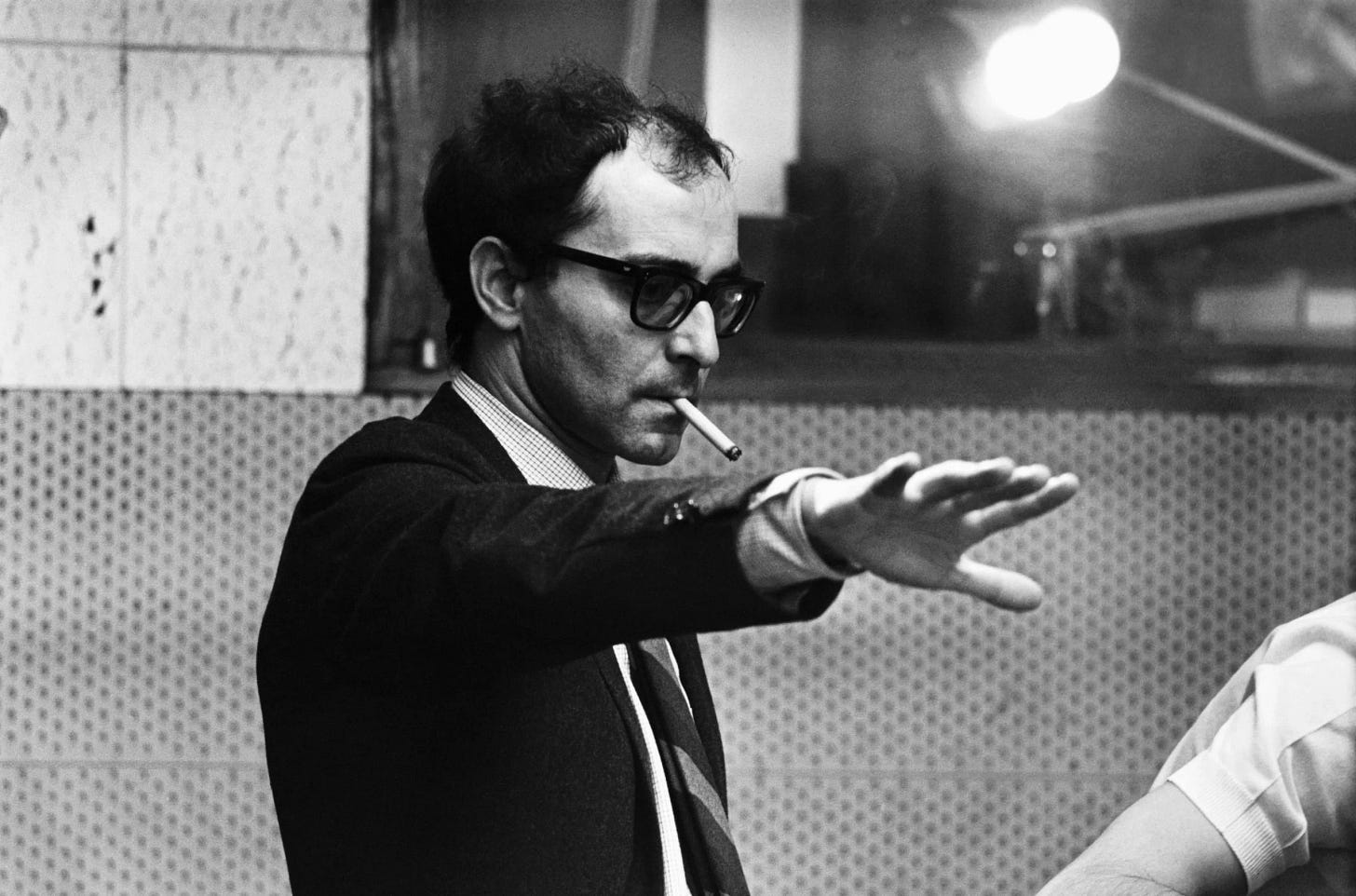🍂 Footnotes #4 | On Living Life Inertly
In this edition: Godard, Beauvoir, Weil, Arendt, Rilke, Cicero and Coleridge.
💭 Word of the week: Ipseity (English) - the realisation that life is an expression of oneself and is influenced by how one chooses to pay attention to the world
Dear friend,
I’m going to ask you a question, and the way you’ll respond to it will determine whether you’re artistic or not.
Here’s the question: Can you tell yourself, right now, about your day?
Don’t hurry. Feel free to take a pause. Now, how did you tell it?
Did you tell it as a historical event? Or as a memory?
The answer to the former often sounds like a police report. ‘I woke up at 8 am, brushed my teeth, went to work; at 5 pm I came back … etc.’ Bureaucrats love looking at the world this way, but writers and artists respond to this question by forming a memory.
The exact sequence of events doesn’t matter to an artist; it’s the memory that was formed as a consequence of the chemical reaction between those events that matters.
It doesn’t matter at what time your train arrived yesterday. After all, hundreds of your fellow passengers boarded the same train at the same time. This way of looking at the world is soulless because it doesn’t reveal anything about you; what it does is make you uniform with the crowd of fellow travellers.
My dear reader might have noticed that I love reading biographies. I’ve read about a hundred of them over the past ten years. What I’ve noticed is that boring biographies always focus on dates, but the great ones focus on feelings.
Who cares when exactly Napoleon was sent to St. Helena? What I care about is what he thought, what he felt, and what he planned to do at that moment in history.
We often call the greatest works of art ‘timeless’, but why? Because a great artist is a magician who moulds different shapes of eternity. They don't belong to time and work outside of time.
Great artists are masters of paying attention. They refuse to live life inertly. They know that life is short and the universe is infinite. Therefore, they must stay awake to eternity.
Their motto is an amalgam of amor fati and carpe diem.
Often the simplest questions have the deepest answers. The question that asks us to tell about our day is one of them.
Because the way we respond to it reveals that every now and then, you and I turn into tiny bureaucrats. We stop forming memories and instead look at life as a random sequence of events. This happens when we begin to live life inertly. We let events direct us instead of being in control of events. We let others choose what we pay attention to, instead of being vigilantly present at all times.
Filmmakers such as Jean-Luc Godard, poets such as Rainer Maria Rilke, thinkers such as Simone de Beauvoir say that our existence begins once we learn how to choose what to pay attention to in life.
Man only exists by choosing himself. If he refuses to choose, he annihilates himself.
~ Simone de Beauvoir
The fact that we were born doesn’t prove that we are alive. We can claim that we’re alive only when we master our attention.
So, now, my dear reader, allow me to ask you once again: Tell me, please, about your day?
Confide tibimet.
🍂 Footnotes
Started reading Eilenberger’s recent book on The Visionaries such as Beauvoir, Rand, Arendt and Weil. Enjoying it so far.
Tried reading Jane Stevenson’s book The Light of Italy on the humanist Duke Federico da Montefeltro, but 50 pages in got a bit disappointed by her academic style of writing. I had to abandon it. I will write about it in detail next week. I think bad writing gives great advice on how not to write.
This speech given by Alexander the Great to the group of soldiers who rose against him gives me shivers. Watch it here.
Love the paintings by this Armenian artist - Lusiné Tumanian
I watched Ridley Scott’s Kingdom of Heaven (2005) this week and liked it. It revealed to me the personality of Baldwin IV, who crashed famous Saladin at the age of 16! Both Saladin and Baldwin seem to be one of the most virtuous military commanders in history.
I am currently…
📖 Currently reading: The Visionaries by Wolfram Eilenberger (finished W.G. Sebald’s Austerlitz - he is genius. )
🎧 Current audiobook: How to Win an Argument by Cicero
📚 Book(s) Bought this Week: Selected works of Samuel Coleridge (Oxford Edition)
Uploaded this week:
🖋️ Quote of the week
Advice from Jean-Luc Godard
What should young people do? Try to tell me about your day. Fifty years ago, I was already telling them. That’s why there are no longer any young people now who come and ask me, because they know that I would say to them… So just tell me about your day.
You got up this morning. You did that like that. But don’t demonstrate how the police would do it: He did this… then lunch. And then, you go home.
If you film like the police, watch it and ask youself: Is this really my day? Was it really like that? … You should watch it back and feel how you day was.







